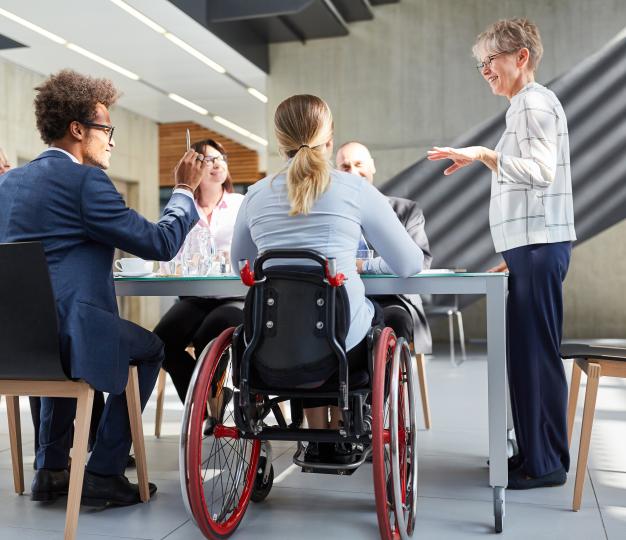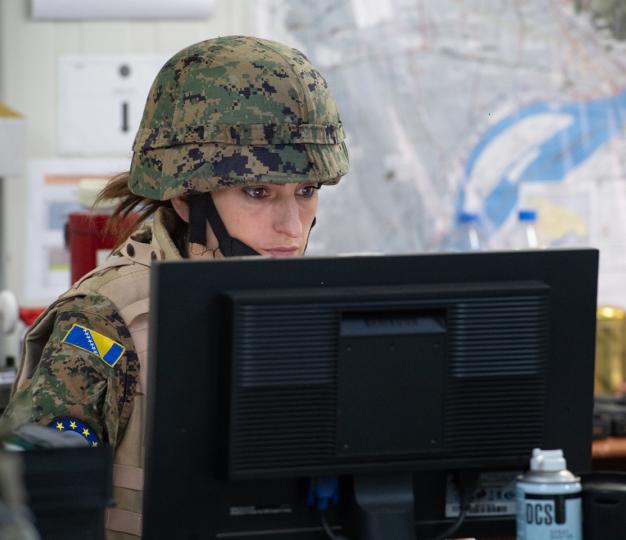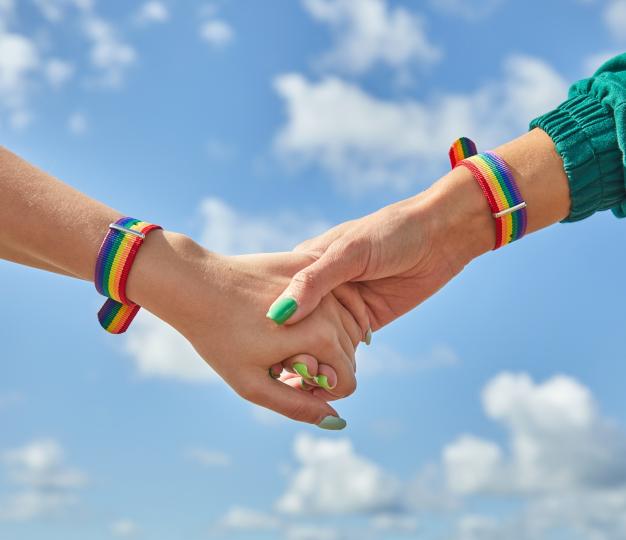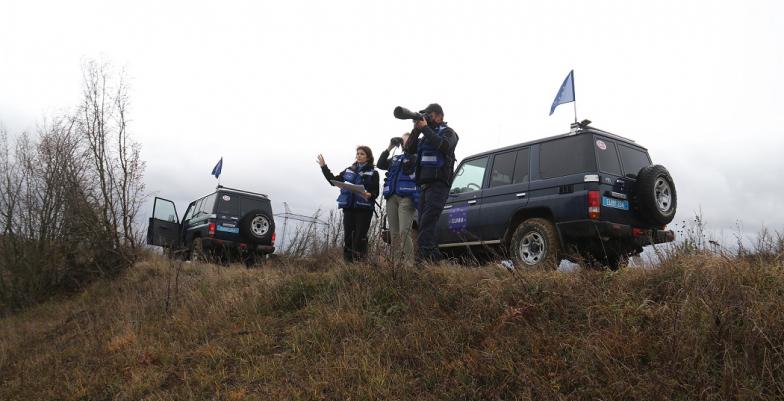Equality
The European External Action Service has a Task Force dedicated to mainstreaming equality, diversity and inclusion throughout the EEAS and EU external action. This encompasses supporting and building capacity for EEAS leadership and staff to mainstream inclusive and gender-responsive approaches in their work, as well as targeted actions for greater gender equality, diversity and inclusion.
Gender equality, women’s empowerment, and equality in the broadest sense of the word are political objectives and priorities of the EU. To obtain sustainable outcomes and respond to the expectations of our changing societies and their diverse citizens, it is essential to integrate gender-responsive approaches and perspectives of equality into all of the EU’s analyses, responses to challenges, crises and conflicts, and contributions to rules-based multilateralism.
In Focus

EU Roadmap to strengthen women's rights
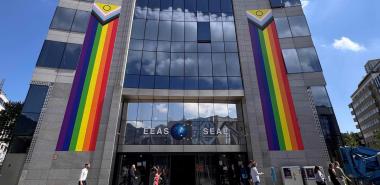
Pride
Navigate the topic
Ambassador for Equality, Aude Maio-Coliche
Aude Maio-Coliche is the European External Action Service’s Ambassador for Equality.
Previously she was Director for Strategic Communication and Foresight. Before that, she served as EU Ambassador to Argentina and to Venezuela and held roles within the European Commission and the EEAS, including responsibility for EU-Colombia and EU-Latin America relations, as well as EU-Central Africa relations.
She contributed to the shaping of the human resources policies of the then newly created European External Action Service in 2011. She has also worked in the private sector, providing consultancy services in EU affairs for international companies.
Ms. Aude Maio-Coliche’s extensive experience spans across diplomatic relations, strategic communication, promoting EU interests and values and fostering international cooperation. She studied in Lille (FR), Saarbrücken (DE), Warwick (UK) and Bruges (BE). She holds a Postgraduate in International Economy and Community Law from the University of Lille and a Master degree in Political sciences of the College of Europe in Bruges.
Gender Equality
The EU has a robust policy framework on gender equality, notably the Gender Action Plan III (GAP III), together with the EU Gender Equality Strategy 2020-2025, the European Pillar of Social Rights and the Action Plan on Human Rights and Democracy. This framework represents a clear compass to global, regional and local promotion of gender equality and equal opportunities.
Gender equality is not only a fundamental human right, but a necessary foundation for a democratic, sustainable, prosperous and peaceful world. It is also about ensuring equal economic participation and equal access to education and health, granting everybody equal and meaningful participation in decision-making, combatting all forms of discrimination and gender-based violence as well as promoting sexual and reproductive health and rights.
The Gender Action Plan III (GAP III) is the main policy framework to realize this. It is our guiding tool when it comes to our external action. The key word is mainstreaming, making sure that gender is integrated as a reflex in our policy documents, position papers, decisions, and Council conclusions. GAP III also includes the notion that we want to lead by example, by establishing gender-responsive and gender-balanced leadership at top EU political and management levels.
Within the EEAS, we continue to improve the conditions for everybody to work, while being able to express fully who we are, as well as to achieve gender balance to produce results that are more sustained and predictable.
The EU is continuously working to strengthen gender mainstreaming in the EU’s foreign and security policy through ensuring a systematic use of a gender perspective, based on solid gender analysis, into all political dialogue, diplomacy and action.
Equality
The EU takes action globally to prevent and denounce all forms of discrimination inter alia on the grounds of sex, racial or ethnic origin, religion or belief, disability, age or sexual orientation and gender identity, while promoting access to equal opportunities for everyone in their diversity in all spheres of life. It is important that discriminatory laws, policies and practices are fought worldwide, as they further expose persons in vulnerable situations to harassment and violence, unemployment, social exclusion and poverty.
We combat discrimination and promote equality, both within the EU’s borders and beyond, through a combination of public diplomacy and awareness-raising activities, political and human rights dialogues, capacity building and financial assistance. The EU supports the universal adherence to all the core human right instruments, including the ICCPR, ICESCR, UNCRPD, CEDAW, ICERD and CRC.
Women, Peace and Security
The EU actively implements the UN Security Council Resolution 1325 on Women, Peace and Security (WPS Agenda), and accompanying WPS resolutions, putting it at the centre of the full spectrum of the EU Common Foreign and Security Policy. The implementation of the WPS agenda represents an essential tool in ensuring that the rights, agency and protection of all women and girls are observed and upheld at all times, and to confirm that a meaningful and equitable role in decision-making is secured for women of all ages during each stage of conflict prevention, peace-making, peacebuilding and post-conflict rehabilitation. An example of this is the EU Strategic Compass where Women, Peace and Security forms an integral part.
LGBTIQ+
Equality and non-discrimination are part of European Union’s core values, as emphasized in the Universal Declaration of Human Rights, the European Treaties, and the EU Charter of Fundamental Rights.
LGBTIQ+ persons still face multiple challenges worldwide and action is needed to combat it. Promoting equality, diversity and inclusion is a matter of human rights, but also of peace and security, social justice and economic progress.
The EU is stepping up its actions to prevent, denounce and combat all forms of discrimination and violence against LGBTIQ+ persons, including hate speech and hate crimes online as well as offline through its LGBTIQ+ Equality Strategy 2026-2030. The EU actively condemns and combats discriminatory laws, policies and practices, including the criminalisation of consenting same-sex relations, as stipulated in the EU Guidelines on LGBTI persons.




